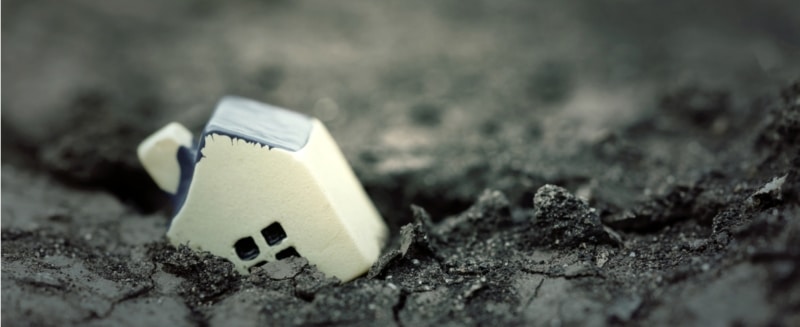Don’t count on your homeowners insurance policy in the face of an earthquake—neither quakes nor losses resulting from earth movement are covered under standard policies. Supplemental coverage is available, however, and you may want to consider it if you find that you live in an area with potential for quakes.
According to the U.S Geological Survey (USGS), earthquakes pose significant risk to 75 million Americans in 39 states. While California carries two-thirds of the nation’s earthquake risk, according to the Insurance Information Institute (III), earthquakes hit many other parts of the country, too.
Historical norms aren’t always a good guide. If recent weather conditions, like droughts and flooding, are not corresponding to historical norms, who’s to say fault line activity won’t diverge from historical norms as well?
Take Superstorm Sandy: Many of the impacted areas weren’t prone to extensive flooding prior to the storm. Because of this, many residents did not have flood insurance. When these homeowners fell victim to flooding and wind damage from the powerful storm, it was too late to get coverage.
Earthquakes are no different. It’s not just Californians who may want to think about coverage. East Coast residents, for example, have experienced tremors in the past, and Virginia—not normally thought of as a hotbed of earthquake activity—experienced a 5.8 magnitude earthquake in 2011.
This begs the question: How do you figure out whether you need this coverage?
Start by checking out the seismic hazard maps provided by the USGS. These maps, which are broken down by state, can give you an idea of the probability of an earthquake hitting your area.
Earthquake insurance can provide protection against shaking and cracking that can destroy buildings and personal possessions; costs incurred from stabilizing the land under your home; costs associated with debris removal; and living expenses you may have while your home is being rebuilt or repaired.
It is strongly suggested that you review you coverage and discuss your options with your insurance provider. Remember to ask whether the policy you’re considering covers the aforementioned natural disasters that often occur because of an earthquake. If not, ask about the availability of supplemental coverage.
Other damage that may result from earthquake activity, like fire or water damage, may be covered under your homeowners insurance policy, but be sure to confirm that this is the case with your existing policy.
I have yet to meet an insurance professional who can predict the future. While we have the ability to model a homeowner’s exposure to certain events, it’s impossible to be 100 percent certain. If you feel you could be at risk of experiencing an earthquake in your area, now may be the time to talk to your insurance professional about coverage.
Karen Skoler has been in the insurance business since 1969 with a background in marketing, claims, servicing, sales, and supervising with both insurance carriers and independent agents. She earned her Chartered Property Casualty Underwriter designation in 1994.
Presently, Karen is employed as a commercial lines manager at Petschauer Insurance Agency in Ridgewood, NY. She often writes content for blogs in the interest of helping people understand insurance coverages they have either purchased or are contemplating purchasing. You can follow her blog posts at www.jpins.com.






